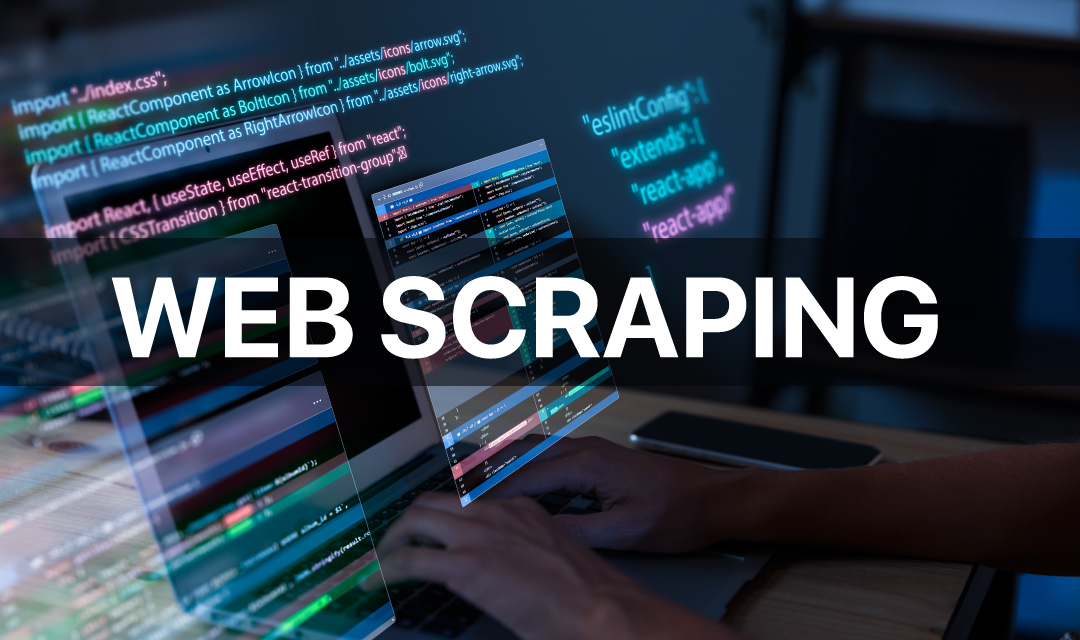
In the fast-paced digital world, businesses are constantly seeking innovative ways to gain a competitive edge, and one powerful tool in their arsenal is web scraping. Web scraping involves the extraction of valuable data from websites, and structuring them for database storage. Businesses across various industries are leveraging web scraping techniques to collect data and use them to enhance operations, make informed decisions, and stay ahead of the curve. This article explores how businesses utilize web scraping services and the crucial aspect of how to choose the right proxy service for a seamless scraping experience.
How do businesses use web scraping services?
Businesses use web scraping services to extract valuable data from websites for various purposes. Here are some common ways businesses leverage web scraping services:
1. Market Intelligence and Competitor Analysis
Businesses employ web scraping to gather insights into market trends, competitor analysis, and consumer preferences. By extracting data on pricing, product offerings, and customer reviews, companies can refine their own strategies for sustainable growth.
2. Price Monitoring and Optimization
E-commerce entities use web scraping to monitor competitor prices and adjust their own prices in real-time. This dynamic pricing approach ensures competitiveness and maximizes profitability.
3. Lead Generation
Web scraping aids in lead generation by extracting contact information from various sources. Businesses can build targeted marketing campaigns and streamline sales efforts by accessing a pool of potential customers.
4. Content Aggregation
From news websites to job boards, businesses utilize web scraping to aggregate content from diverse sources, creating comprehensive databases of market data. This content aggregation enhances user experience and drives engagement.
5. Social Media Monitoring
Web scraping enables businesses to monitor social media platforms for brand mentions, sentiment analysis, and competitive insights. This proactive approach helps in managing reputation and refining marketing strategies.
6. Data Enrichment
Companies enhance their datasets by incorporating additional information through web scraping. This enriched data is instrumental in making informed business decisions and improving the accuracy of analyses.
It should be noted that while web scraping can provide significant benefits, businesses need to ensure that they adhere to ethical practices and comply with legal requirements. Some websites may have terms of service that prohibit web scraping, and businesses should respect those terms to avoid legal issues. Additionally, businesses often use proxy services to manage their web scraping activities and mitigate the risk of IP blocking or detection by websites.
Choosing the Right Proxy Service for Web Scraping
Web scraping comes with its set of challenges, primarily the risk of IP blocking or being detected by websites. To overcome these obstacles, businesses often turn to proxy services. Choosing the right proxy service is critical for ensuring the effectiveness and reliability of web scraping operations. Here are key considerations for choosing a right proxy service for your business.
1. Geographical Location
Select proxies that align with the target website's geographical location. This helps in mimicking organic user behavior, reducing the likelihood of detection.
2. IP Rotation and Diversity
Opt for proxy services that offer IP rotation and a diverse range of IP addresses. This prevents websites from flagging scraping activities associated with a single IP, promoting anonymity and sustained access.
3. Performance and Speed
Evaluate the speed and performance of proxy services. A fast and reliable proxy ensures efficient scraping operations, reducing latency and enhancing overall productivity.
4. Scalability
Choose a proxy service that can scale with the growing needs of your business. Scalability is crucial for accommodating increased data extraction requirements without compromising on performance.
5. Security and Reliability
Prioritize proxy services that prioritize security measures. Look for features such as HTTPS support, data encryption, and a reliable infrastructure to protect against potential vulnerabilities.
6. Compliance with Legal and Ethical Standards
Ensure that the chosen proxy service complies with legal and ethical standards. Respect website terms of service and adhere to relevant regulations to avoid legal repercussions.
Conclusion
Web scraping empowers businesses with actionable insights for collecting valuable data from the Internet. However, web scraping should be used ethically and legally to avoid legal implications. When done correctly, organizations can improve their businesses with confidence, harnessing the full potential of web scraping for their growth and innovation initiatives.
The integration of a reliable proxy service is a key component in ensuring the success and sustainability of web scraping operations. By considering factors such as geographical location, IP rotation, performance, scalability, security, and compliance will help achieve your web scraping goals. For more information on how to choose the right proxies, please review our comprehensive proxy buyer's guide.
Share this post
Leave a comment
All comments are moderated. Spammy and bot submitted comments are deleted. Please submit the comments that are helpful to others, and we'll approve your comments. A comment that includes outbound link will only be approved if the content is relevant to the topic, and has some value to our readers.

Comments (0)
No comment